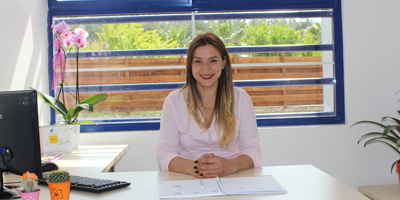EUL Special Education Teaching Department academician Bilmez: Children with Down Syndrome can achieve success in many areas with appropriate educational programs
European University of Lefke (EUL) Dr. Fazıl Küçük Faculty of Education, Department of Special Education Teaching Faculty member Dr. Hatice Bilmez made a statement about “21 March Down Syndrome Awareness Day”.
“In order to create social awareness about Down Syndrome, to prevent discrimination and negative attitudes of individuals with Down Syndrome, to draw attention to the importance of early and continuous education, the United Nations declared March 21 as the World Awareness Day for People with Down Syndrome,” said Bilmez. She stated that it is extremely important to understand individuals with Down Syndrome and their characteristics every day.
Down Syndrome is not a disease to be treated, but a genetic difference
Bilmez said, “Down Syndrome (Mongolismus, Trisomy 21), which was first described clinically in 1866, is a genetic difference, a chromosome anomaly seen in approximately one in 800 live babies. This syndrome, which was called mongolism due to the typical facial appearance in earlier times, is now called “trisomy 21” due to the additional 21 chromosome that causes the disorder. Most individuals (95%) with Down Syndrome have an extra chromosome from the mother or father. The number of chromosomes in the child is 47, not 46, ” she said, adding that Down Syndrome is not a disease that needs to be treated, but a genetic difference.
A regular, disciplined and uninterrupted education program is important for children with Down Syndrome.
“Babies with Down syndrome often grow slower than their peers and their mental development lags behind their peers. However, with appropriate educational programs, children with Down Syndrome can achieve success in many subjects and can establish meaningful lives in society ”, said Bilmez, and drew attention to the need for a regular, disciplined and uninterrupted education program to achieve this.
Bilmez concluded her words by saying, “As a society, we must learn to accept all individuals with their differences and make it a habit to act accordingly”.

